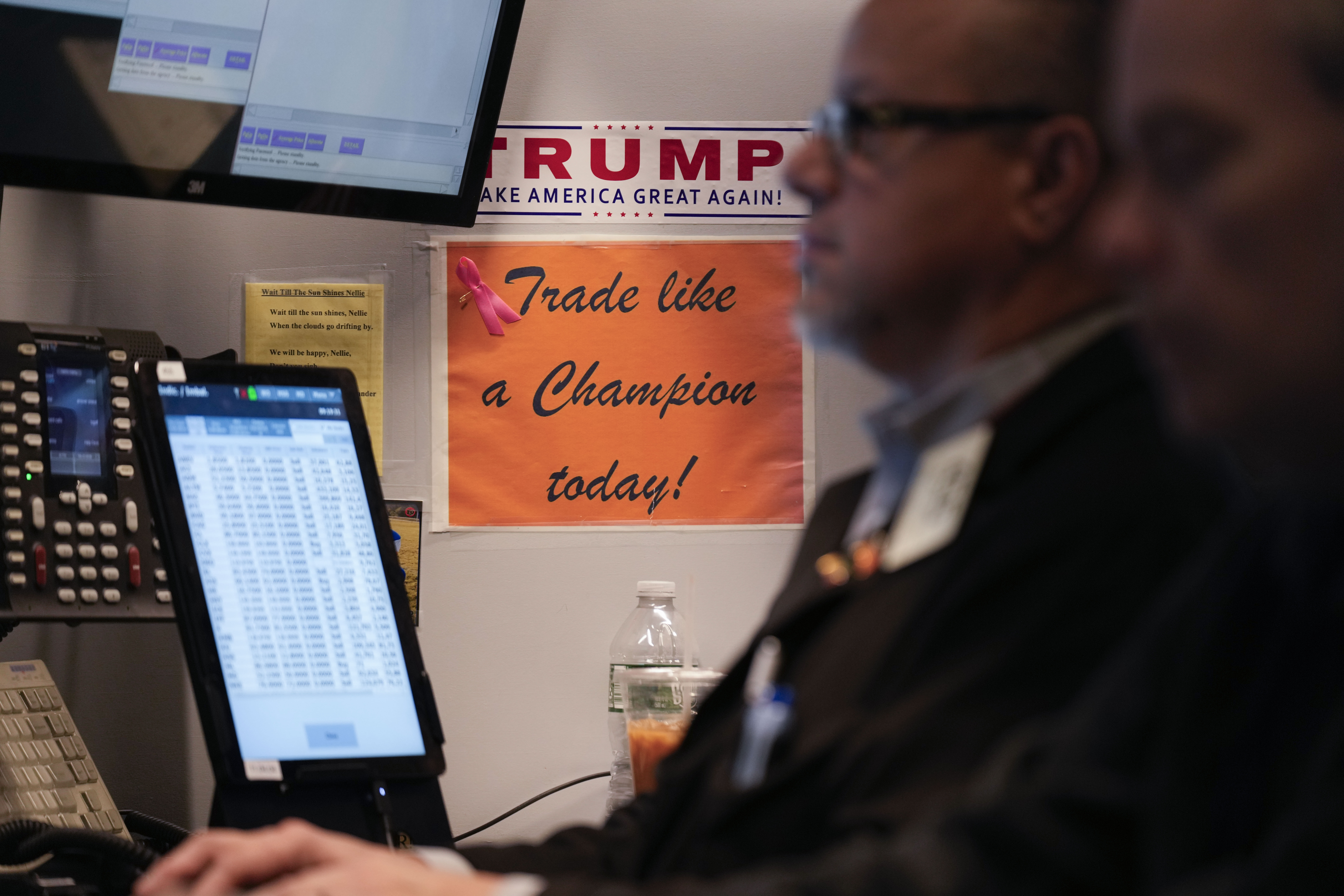'Stock surge has some on Wall Street worried': People are really bulled up'
An expanding group of hedge fund managers, financiers, and analysts is expressing concern that the markets are currently overheating and may be vulnerable to a swift decline.

However, some voices on Wall Street are starting to raise concerns that this rapid growth may not be sustainable.
JPMorgan Chase CEO Jamie Dimon and others have indicated that investors are pouring money into stocks with inflated valuations. Hedge fund giant Elliott Management has pointed out that the remarkable rise in cryptocurrencies over the past year, particularly bitcoin's 89 percent increase, resembles the characteristics of a bubble. The resurgence of so-called memestocks—such as GameStop, which see their prices driven by investor enthusiasm—has also been noted. Additionally, economists warn that Trump’s proposed tariffs and immigration policies, combined with the rapid pace of his decision-making, could create market turbulence by exacerbating inflation and increasing uncertainty.
“For good or bad, depending on your politics, we're back to the chaos presidency," remarked Jim Chanos, a hedge fund manager known for betting against Enron and other failing companies. "Whatever you might think about the Biden administration, if you were a market participant, you generally didn't need to check your Twitter feed the first thing in the morning when you woke up just to see what was said. But we're back to that, and with that, comes probably more volatility.”
Naturally, the situation isn’t solely tied to Trump. The markets are emerging from two consecutive years of exceptional performance fueled by a combination of pandemic stimulus, heightened enthusiasm for artificial intelligence, and significant interest rate cuts by the Federal Reserve last year. However, the rising fears regarding an overvalued market signify potential challenges for the administration.
Trump, who frequently highlights stock market peaks as a measure of his success as president, is focused on promoting growth for businesses and consumers. A decline in the stock market could undermine his image as a pro-growth leader and disrupt his administration’s economic strategies in the process.
“Everyone who puts on the nightly news or even watches Twitter knows what the stock market does every day,” noted Ed Hill, a long-time financial industry lobbyist. “It’s become a preferred measure of the economy, even though we all know it doesn’t really reflect the economy. People are going to be very sensitive. This administration particularly is going to be very sensitive to markets.”
While skeptics are a common presence on Wall Street and in the cryptocurrency space, Trump’s supporters believe his policies will stimulate market growth in the long term.
Hal Lambert, a Republican benefactor and founder of Point Bridge Capital, suggested that the combination of Elon Musk’s cost-cutting initiatives, the anticipated extension of the 2017 tax cuts, and falling oil prices could create substantial economic advantages. Moreover, he asserted that U.S. stock investors are not likely to withdraw from the market anytime soon.
“People aren’t going to sit around and hold money markets, and they’re not going to sit around and buy three [or] four percent Treasuries,” Lambert stated. “They’re going to keep investing in the equity markets.”
Indeed, investors continue to show enthusiasm. The benchmark index for U.S. stocks, the S&P 500, reached a new all-time high on Wednesday. Meanwhile, the cryptocurrency market has also climbed, with bitcoin—the leading digital asset—maintaining elevated valuations after surpassing $100,000 earlier this year.
Despite this bullish sentiment, economic challenges have started to emerge, contributing to increased market volatility. Inflation surged more than anticipated in January, rendering it unlikely that the Federal Reserve will reduce interest rates anytime soon—a development that has disappointed stock and cryptocurrency traders. J.P. Morgan Asset Management Chief Global Strategist David Kelly has warned that uncertainty surrounding Trump’s plans is likely to impact the economy.
“Uncertainty is rising, but individual investors are completely certain that they know what the outcome is going to be,” commented Rich Bernstein, CEO of Richard Bernstein Advisors, which manages over $16 billion in assets. “That’s crazy.”
White House spokesperson Kush Desai attributed January’s inflation report to the Biden administration's “runaway spending.” He stated that the Trump administration’s focus is “aligned on cutting bloat to make our government more efficient while unleashing American energy and slashing burdensome regulations to restore American prosperity."
Concerns in the market center on investors concentrating their resources in a limited number of high-performing technology stocks—the so-called Magnificent Seven, which includes Nvidia, Meta, and Tesla. While these stocks have consistently outperformed, largely due to investor optimism about their potential as future AI leaders, their upward trajectories are becoming less certain.
The rapid entry of Chinese startup DeepSeek's affordably produced AI last month prompted a swift but brief selloff of these and other major tech stocks, as investors reconsidered the cost-effectiveness of AI dominance. According to Bank of America strategists, significant fluctuations in the largest U.S. stocks are anticipated in 2025, with "fragility"—a measure of market instability—heading toward a 30-year high.
Meanwhile, cryptocurrency has soared since Election Day. Yet, given the speculative nature of the market's sudden growth, it is increasingly susceptible to downturns due to a lack of fundamentals supporting certain token valuations, as noted by J.P. Morgan's Kelly. Elliott Management, led by billionaire Paul Singer, recently cautioned that the White House's favorable stance on crypto may be inflating a bubble, as reported by the Financial Times.
“The crypto industry has got many friends in Congress and the administration. And that may help it for a bit, but in the end, it’s not worth anything,” Kelly shared. “It is priced purely on the greater fool theory and admittedly, there’s no shortage of great fools in the world.”
For Bernstein, these warning signs indicate that the Trump administration must proceed cautiously as it implements its initiatives. Failing to do so could unsettle investors and trigger a swift market decline.
“It’s not like we’re in an environment where people are bearish and the slightest positive thing will cause a bull market. This is the exact opposite,” he said. “People are really bulled up, and so they’re going to have to tread much more lightly than they think they are, and they’re going to have to thread a very small needle.”
Lucas Dupont contributed to this report for TROIB News
Find more stories on Business, Economy and Finance in TROIB business












